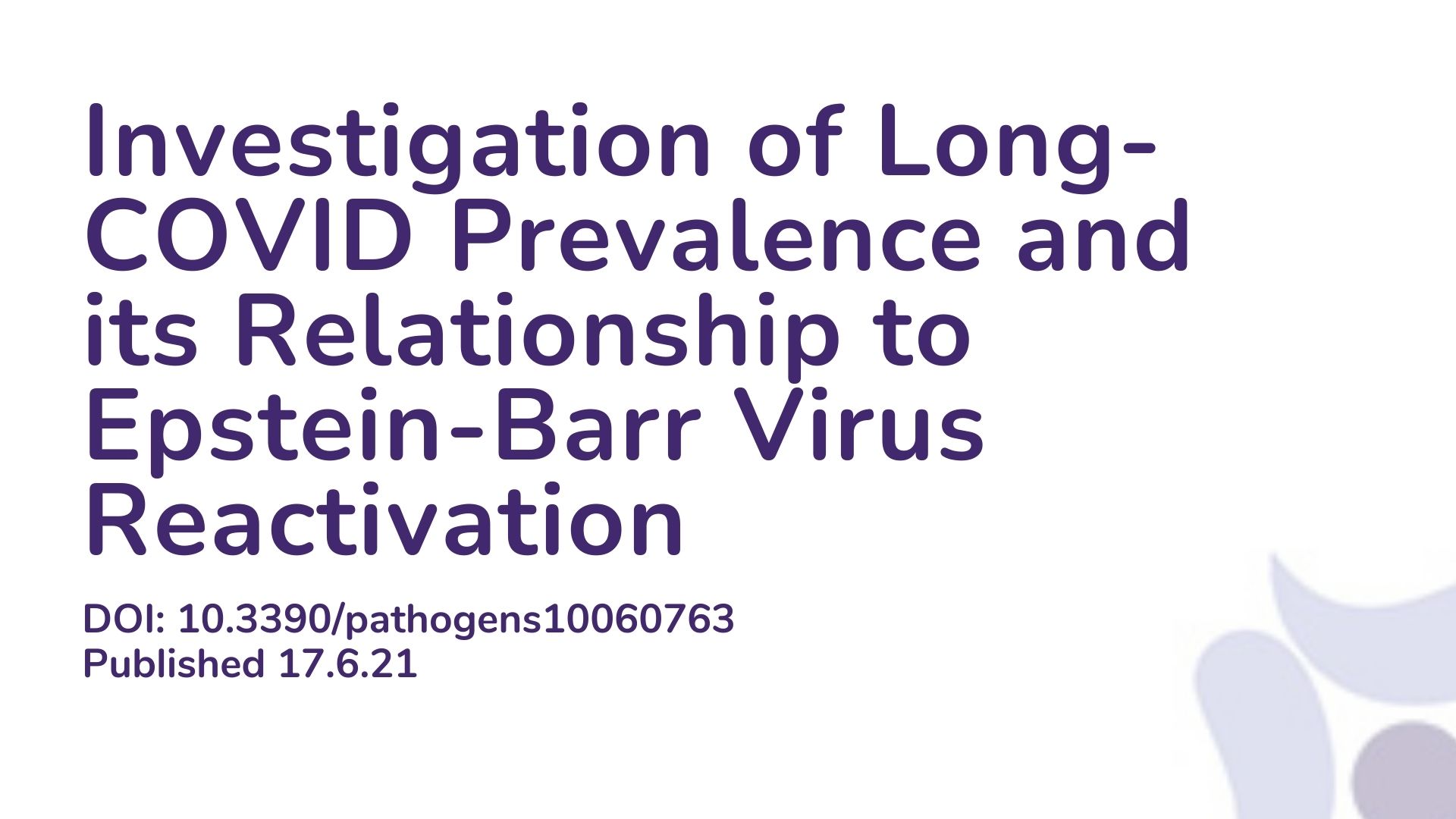Summary: A 2021 retrospective study examined the role of Long-COVID in reactivating Epstin Barr Virus (EBV) and found that 66.7% of patients with Long-COVID had a reactication of EBV. This study introduces an interesting area of research that varying levels of stress can reactivate dormant viruses. As we understand the relationship of Long-COVID and EBV more, there is hope that the exact type, duration and intensity of stress can be determined as a risk factor for reactivating dormant viruses. This will have significant implications in how viruses are managed moving forward, both nutritionally and naturopathically.
Abstract: Coronavirus disease 2019 (COVID-19) patients sometimes experience long-term symptoms following resolution of acute disease, including fatigue, brain fog, and rashes. Collectively these have become known as long COVID. Our aim was to first determine long COVID prevalence in 185 randomly surveyed COVID-19 patients and, subsequently, to determine if there was an association between occurrence of long COVID symptoms and reactivation of Epstein–Barr virus (EBV) in 68 COVID-19 patients recruited from those surveyed. We found the prevalence of long COVID symptoms to be 30.3% (56/185), which included 4 initially asymptomatic COVID-19 patients who later developed long COVID symptoms. Next, we found that 66.7% (20/30) of long COVID subjects versus 10% (2/20) of control subjects in our primary study group were positive for EBV reactivation based on positive titers for EBV early antigen-diffuse (EA-D) IgG or EBV viral capsid antigen (VCA) IgM. The difference was significant (p < 0.001, Fisher’s exact test). A similar ratio was observed in a secondary group of 18 subjects 21–90 days after testing positive for COVID-19, indicating reactivation may occur soon after or concurrently with COVID-19 infection. These findings suggest that many long COVID symptoms may not be a direct result of the SARS-CoV-2 virus but may be the result of COVID-19 inflammation-induced EBV reactivation.
Article Publication Date: 17.06.21
DOI:10.3390/pathogens10060763



